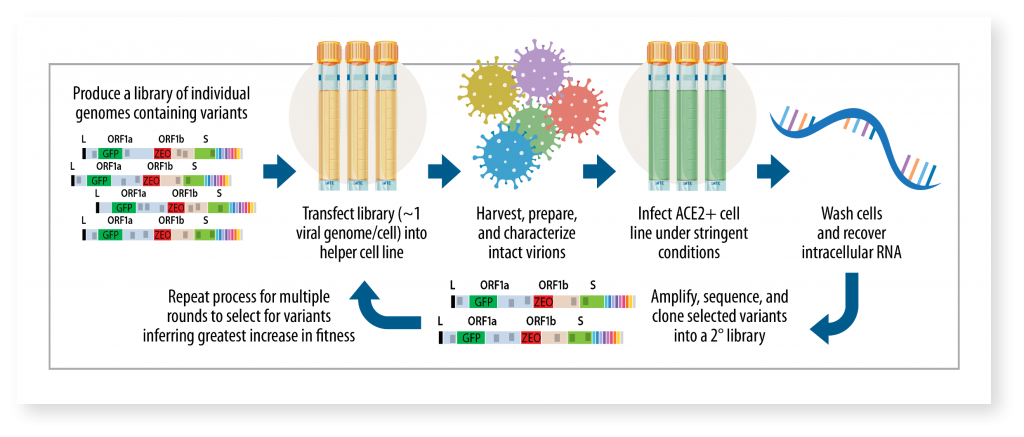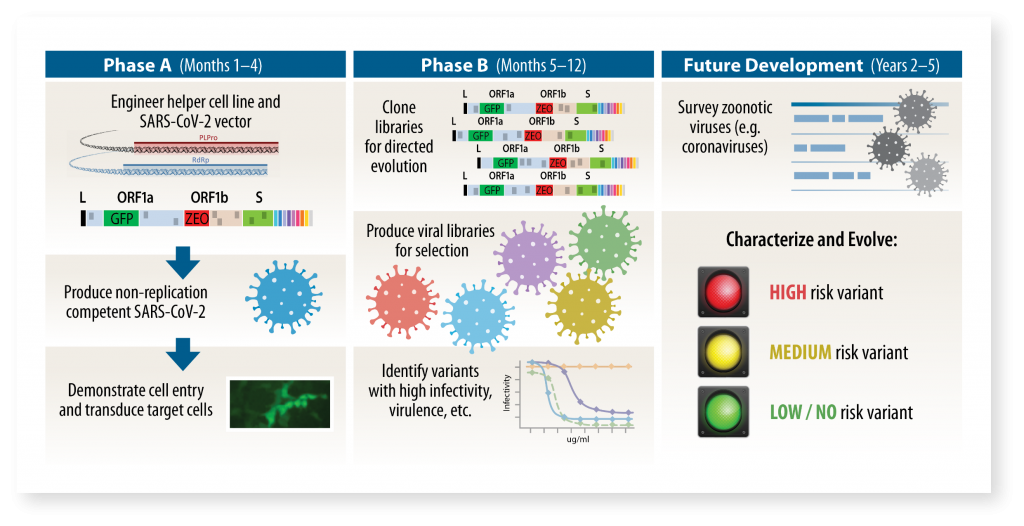
Senior Molecular Biologist
Contact Curt
The Intelligence Advanced Research Projects Activity (IARPA) funded the development a laboratory-based model of viral evolution of pandemic viruses as a part of the COVID-19 Seedling Research program. The COVID Seedling Research program was created under the unique circumstances of the COVID-19 pandemic to solicit short-term, limited scope research in topic areas that are not addressed by emerging or ongoing IARPA programs. One such topic was the development of tools for widespread surveillance and risk estimation of animal-borne pathogens (before they ever come into contact with humans). more dangerous strains and investigate prophylactic measures or treatments for these novel viruses before they reach pandemic levels.

This risk estimation was to include potential to cross species barriers, transmission mechanisms, reproduction numbers, incubation times, duration of infectivity, virulence, mechanisms of human immune evasion and modification, pathogenetic mechanisms, and/or lethality. Signature Science was initially selected to receive Phase A funding, under which our synthetic biologists engineered non-replication competent SARS-CoV-2 vectors as proof-of-concept. After successfully demonstrating proof-of-concept in Phase A, IARPA awarded a second-phase contract extension to continue the development the model, shifting focus to the study of viral variants which were directly relevant to the state of the COVID-19 pandemic. With the additional funding, Signature Science employed synthetic biology techniques common in the field of viral vectorology to deliver an accurate and safe laboratory alternative to in silico modeling, which can be limited by a lack of empirical data. In doing so, Signature Science produced a catalog of dangerous viral variation to compare to emerging epidemiological data. Should critical variants begin to arise in human or animal populations, IARPA and the U.S. Intelligence Community will be positioned to act, informing public health response to restrict transmission of the more dangerous strains and investigate prophylactic measures or treatments for these novel viruses before they reach pandemic levels

Want more information about RAVEN?
